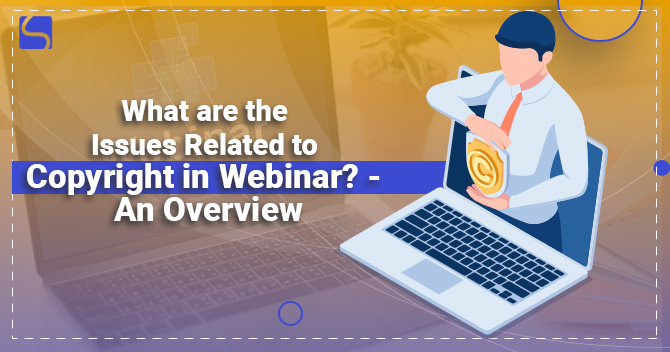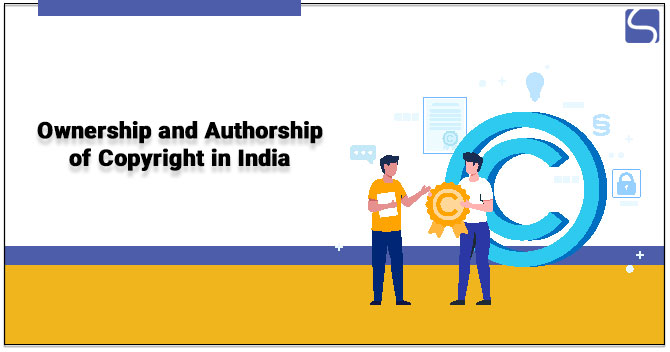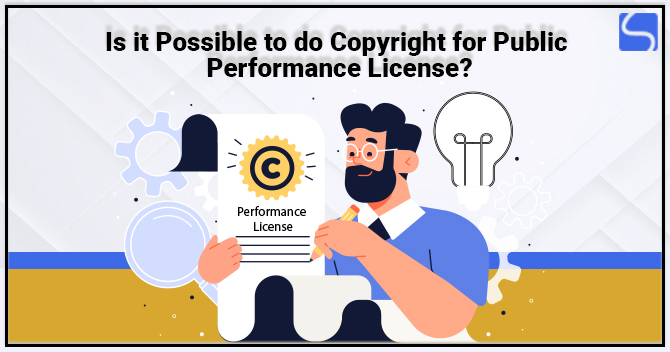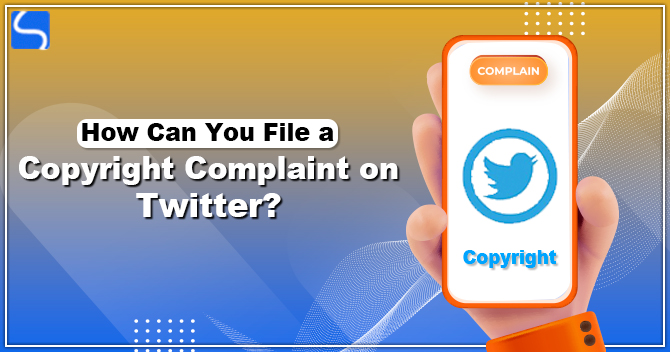What are the Issues Related to Copyright in Webinar? – An Overview

Karan Singh | Updated: Feb 11, 2022 | Category: Copyright
Because of Covid-19, all the physical activities have moved to digital mode. Due to this pandemic, the online mode of learning is a new phase; since the lockdown, a new phase has begun, where a number of webinars taking place digital are extremely high. So the primary issue related to Copyright in Webinar is whether there is any Copyright Infringement or Violation caused due to online webinars which are being conducted. In this write-up, we will analyse the issues related to Copyright in Webinar and discuss the rights of the organisers, speakers, and participants under the Copyright Law of India.
Table of Contents
What are the Challenges Faced in Online Education During Covid-19 Pandemic?
Due to the Covid-19 pandemic, education has witnessed huge revolutionisation and the core of reform is the way in which the delivery mechanisms operate. With classes being conducted or carried out online, responsibilities on legal research now review the questions of the reasonableness of Copyright Laws and its application regarding education that is given to the students everywhere through digital mode, be it through recorded lectures, study materials, etc. With growing assessment & debate on this area, there certainly lies the ability for discourse & dissemination.
Copyright Law and Fair Use
In India, Copyright Law provides protection to the expression of an idea rather than an idea itself. Therefore, tangible expressions such as books & videos are safeguarded under Copyright Laws. In India, protection is permitted to all works in the nature of dramatic, artistic, musical, and literary work as well as sound recording & cinematographic films as described in Section 13 of the Indian Copyrights Act, 1957[1].
Section 52(1) of the Act lists out the acts that don’t constitute Copyright Infringement. Section 52(1)(h) to 52(1)(j) compute the exceptions for the use of Copyrighted material for educational purposes. Whether the specific use of a copyrighted work come under the ambit of these provisions is determined or resolved by whether it is made for the determination and in the way as specified therein. As held by the Delhi High Court (DHC) in the landmark DU photocopying case, the 4-factor test used in other jurisdictions like the United States to make a fair use purpose doesn’t apply under Indian Law. The Court explained that the fairness of use under Section 52 is to be determined only by the wording of the provisions & the limitations specified therein.
Public Use Vs Private Use of Webinar Recordings – Copyright in Webinar
The speech of any individual or a person in public is considered as a performance, and the individual delivering such speech or a lecture possesses the right to make a visual or sound recording of the performance for broadcasting. Any individual who desires to make a sound recording/broadcast the same has to take prior authorisation from the speaker(s). The requirement of prior authorisation or a license can be avoided only if the intention of the producer is to use it for a private purpose and not for communicating it to the public.
The term Private concerning Copyright was discussed in the case of A.N. Parasuraman vs Blackwood that the circulation or spreading of copies by the producer or author would not constitute private use & would amount to infringement of the Copyright of the speaker. Hence, it is adequately clear that independent Copyright in a webinar recording, the producer, regardless of being its author or creator, requires the speaker’s permission to use it for any purpose other than for Private Use.
Copyright in Webinar Recording – A Brief
The speaker in the webinar has the special right to record the lecture. Any individual or person other than the speaker recording the complete lecture or webinar would be committing a violation or infringement. Speakers are usually invited by various organisations or persons to deliver a lecture as a part of a webinar. The creator of the recording of such lecture would be the individual arranging for this lecture.
By virtue or integrity of Section 17 (cc) of the Act, the speaker will have exclusive ownership over the lecture, every if he or she is employed by another individual or person who makes all the arrangements for the lecture. Hence, the producer of the recording would require the authorisation of the speaker of the webinar to save one from committing the Copyright Infringement Act. A conflict of interest will occur if a speaker is not given the power to limit the producer from making recordings of their lecture.
However, if the producer is allowed the right to make a recording without prior consent from the speaker, the exclusive right of the speaker to produce recordings of their owner would strike with the right of the producer to communicate the recording to the public.
Case Analysis Concerning Copyright in Webinars
The courts in India have agreed on what constitutes fair use through judicial decisions. In the matter of Ammini Amma and Ors vs Civic Chandran and Ors., The High Court of Kerala laid down a three condition test to know whether the defence of fair use can be taken in a case and these were;
- The objective for which it is taken;
- The value & quantum of the matter taken;
- The probability of competition between the two works.
However, if someone for criticism & examination purpose will not amount to Copyright Infringement of such works as stated in Section 52(1)(a) of the Act. Moreover, Section 52(1)(i) of the Act says that anything that is reproduced by a teacher/student with an educational purpose wouldn’t amount to Copyright Infringement. Yet, there are some limitations that have been placed because of which this doctrine cannot be used for unfair means such as distribution of any copyrighted work in the name of educational purposes.
- The copyrighted work should be attained through legal ways. It will lead to Copyright Infringement if the work is downloaded dishonestly and then socialised for free download of the paid material or work it would result in violation of the copyrighted work. However, downloading original work is allowed through the internet, but it should be done in a legal manner.
- Copyrighted work is permitted to be used for educational & studies purposes; use the exception of the educational purposes & use the copyrighted work in an improper manner. Teachers & students using similar suffer the results for violating copyrighted content.
Conclusion
Nowadays, people can gather information from various sources and use it without violating the rights of the actual owner. It’s vital for everyone to make sure that while using such information, they don’t violate the rights of the actual owner. The Doctrine of Fair Use also has its limitations, and therefore the teachers & everyone else using such must always be cautious.
Read our Article:Unintentional Copyright Infringement – A Complete Analysis














